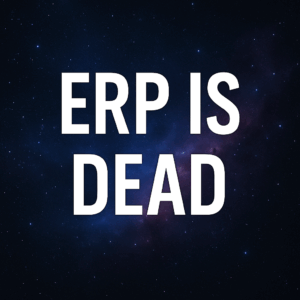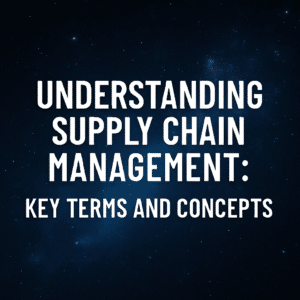Implementing or selecting any new technology is a significant if not multi-million dollar investment. Within these projects, cost management is more critical than ever, and the significance of integrating efficient systems is paramount. In the current business environment, where cost management is more critical than ever, the significance of integrating efficient systems is paramount. Among these, Enterprise Resource Planning (ERP) systems stand out as transformative tools, offering an unparalleled opportunity for businesses to streamline their operations.
This blog delves into the multifaceted ways in which ERP systems contribute to cost reduction, integrating various functions within a business for maximum efficiency. As we explore this topic, we will uncover the essential mechanisms through which ERP facilitates a more cost-effective and streamlined business model.
Table of Contents
ToggleIntegrated Business Operations
Integrated Business Operations stand at the forefront of ERP systems’ capabilities, fundamentally transforming how different departments within a business interact and operate. Integrating core business functions such as finance, human resources (HR), production, and sales is not just about bringing disparate systems together; it’s about creating a cohesive, interconnected environment where information flows freely, and decisions are made based on a unified set of data.
This seamless interconnectivity is crucial in breaking down data silos that often exist within organizations. Each department might use its own software and systems in traditional setups, leading to fragmented and sometimes inconsistent data. ERP systems bridge these gaps, ensuring that everyone in the organization is consuming the same, up-to-date information. This uniformity in data enhances the accuracy of business insights and fosters a more collaborative work environment.
Another significant advantage of integrated business operations through ERP is the ability for managers to gain a holistic view of business processes. This comprehensive perspective is essential for identifying inefficiencies and areas for improvement.
For instance, if the production department is consistently experiencing delays due to a shortage of materials, the integrated system would highlight this as a recurring issue, prompting a review of procurement processes or supplier performance. By identifying these bottlenecks, businesses can take corrective action to streamline operations and reduce costs associated with inefficiencies.
Furthermore, this integration extends to other critical areas such as HR and finance. Payroll, employee performance, expense management, and budgeting are more streamlined and accurate. The integration ensures that financial decisions are informed by current HR data, such as staffing levels and labor costs, which are significant factors in overall operational budgeting and planning.
In essence, the role of integrated business operations within ERP systems is foundational to achieving operational excellence and cost efficiency. By providing a unified platform for all major business functions, ERP systems enable organizations to operate more coherently, make more informed decisions, and ultimately drive down operational costs through improved efficiency and reduced redundancy.
Real-Time Financial Management
Real-Time Financial Management facilitated by ERP systems represents a transformative shift in how businesses handle their financial operations. At its core, this aspect of ERP provides an always-on, comprehensive view of a company’s financial status, offering invaluable insights into expenses, revenues, and cash flows. This continuous monitoring of financial transactions is not merely a matter of record-keeping; it is an active tool for strategic decision-making.
The importance of having real-time financial data cannot be overstated. In today’s fast-paced business environment, accessing current financial information is critical for responsive and agile management.
For instance, if a particular product line is underperforming or if certain operational costs are rising unexpectedly, real-time financial data allows business leaders to identify these trends as they happen. This immediacy enables quicker responses, such as adjusting pricing strategies, reallocating resources, or revising procurement practices to mitigate financial impacts.
Effective budgeting and financial planning are direct beneficiaries of real-time financial management. Traditional budgeting methods often rely on historical data, which, while useful, may not always paint an accurate picture of current or future financial realities. ERP systems, on the other hand, provide up-to-the-minute financial data, allowing for more accurate and dynamic budgeting. This capability is particularly valuable in industries where market conditions can change rapidly, requiring businesses to adjust their financial strategies accordingly.
Another significant advantage of real-time financial management through ERP systems is the automation of key financial processes. Tasks such as invoicing, payroll processing, and account reconciliation, which are traditionally time-consuming and prone to human error, can be automated and streamlined.
This automation not only speeds up the processes but also reduces the likelihood of errors that can be costly in terms of finances and business reputation. For example, accurate and timely invoicing directly impacts cash flow, a critical component of financial health for any business. Similarly, efficient payroll processing is essential for maintaining employee satisfaction and compliance with labor laws.
Strategic Inventory Management
Strategic Inventory Management through ERP systems is a key factor in reducing costs and operational efficiency in businesses. The advanced capabilities of ERP systems in inventory management go beyond mere tracking; they enable a sophisticated approach to managing stock levels, predicting demand, and optimizing inventory turnover.
The ability to accurately track inventory levels is foundational in inventory management. ERP systems provide real-time visibility into current stock levels across various locations, be it warehouses, retail outlets, or production facilities. This visibility is crucial in preventing overstocking, a common issue that results in excess capital being tied up in unsold goods.
Overstocking not only increases holding costs, including storage, insurance, and potential spoilage or obsolescence but also restricts a company’s liquidity, limiting its ability to invest in other critical areas.
Conversely, ERP systems play a pivotal role in preventing stockouts. A stockout situation, where demanded goods are unavailable, can have immediate negative effects on sales and long-term impacts on customer satisfaction and loyalty. By providing accurate and timely data, ERP systems help businesses forecast demand more precisely, enabling them to maintain sufficient stock to meet customer needs without overburdening their inventory.
Enhanced Supply Chain Coordination
Enhanced Supply Chain Coordination facilitated by ERP systems represents a significant leap forward in how businesses manage and optimize their supply chains. Effective coordination between various stakeholders – suppliers, manufacturers, distributors, and retailers – is crucial in the intricate web of modern supply chains. ERP systems are essential tools in achieving this coordination, offering an integrated platform that streamlines and enhances supply chain operations.
The first major benefit of ERP in supply chain management is the enhanced ability to coordinate with suppliers. By centralizing procurement data, ERP systems provide businesses with a clear view of their supplier relationships, including order histories, lead times, and pricing. This comprehensive visibility enables businesses to make informed supplier selection and negotiation decisions.
For instance, a business can use its ERP system to identify suppliers that consistently meet quality and delivery standards and negotiate better terms with them based on this track record. This strategic approach to supplier management ensures a more reliable supply chain and can lead to cost savings in terms of product pricing and reduced risk of supply disruptions.
In addition to supplier coordination, ERP systems greatly improve the procurement process. By automating many aspects of procurement – from purchase order creation to invoice processing – ERP systems reduce the time and effort required to manage procurement activities. This automation also minimizes the likelihood of errors, which can be costly and time-consuming to rectify. Moreover, ERP systems can be configured to trigger automatic reordering of inventory based on pre-set thresholds, ensuring that stock levels are maintained without manual intervention. This automation helps maintain a balance between having enough inventory to meet demand and avoiding excess stock that ties up capital.
To learn more about Supply Chain Management check out our Digital Stratosphere podcast episode titled – Supply Chain Essentials: Exploring the Major Components of Management
Improved Customer Relationship Management (CRM)
Customer relationship management is another area where ERP systems add significant value. It’s important to note that not all ERP systems are proficient in CRM components and if this is a core requirement, businesses may want to consider a focused CRM solution such as Salesforce.
By leveraging CRM data businesses can consolidate customer information and interactions into a single system, and better understand their customer’s needs and preferences.
This information enables them to tailor their offerings, improve customer service, and enhance customer retention. Satisfied customers are more likely to be repeat customers, reducing the costs of acquiring new customers. Moreover, ERP-driven CRM systems can identify cross-selling and up-selling opportunities, further boosting revenue and profitability.
Data-Driven Decision Making
The ability to make informed decisions based on accurate data is crucial for cost-effective business management. ERP systems aggregate data from various sources, providing businesses with comprehensive insights and analytics. These insights can be used to identify trends, forecast future scenarios, and make strategic decisions.
For example, data-driven insights can help businesses optimize their production schedules, reduce energy consumption, or streamline their workforce, contributing to cost savings. Additionally, quickly adapting to changing market conditions based on real-time data is invaluable in maintaining a competitive edge.

Compliance and Risk Management
Navigating the complex landscape of regulatory compliance and risk management is a challenge for many businesses. ERP systems help in this regard by ensuring that business processes adhere to the latest regulations.
This compliance reduces the risk of costly legal penalties and reputational damage. Additionally, ERP systems can identify potential risks in operations, such as supplier reliability or financial vulnerabilities, allowing businesses to address these risks proactively. Businesses can avoid unexpected costs and disruptions by managing compliance and risks effectively.
Conclusion
In wrapping up this comprehensive exploration of how Enterprise Resource Planning (ERP) systems contribute to reducing business costs, it becomes evident that the advantages of these systems are both varied and profoundeThe diverse functionalities and benefits of ERP systems as discussed here, highlight their indispensable role in reducing business costs. By integrating key business processes, providing real-time insights, enhancing supply chain and customer relationships, and ensuring compliance, ERP systems emerge as vital tools for businesses striving to achieve cost efficiency and maintain a competitive edge in the market.
As businesses continue to evolve and face new challenges, the role of ERP in driving cost-effective operations will undoubtedly become more pronounced, solidifying its status as a critical component of modern business strategy.
I would enjoy brainstorming ideas with you if you are looking to strategize for an upcoming transformation or are looking at selecting an ERP system. Please feel free to contact me at eric.kimberling@thirdstage-consulting.com. I am happy to be a sounding board as you continue your digital transformation journey.





